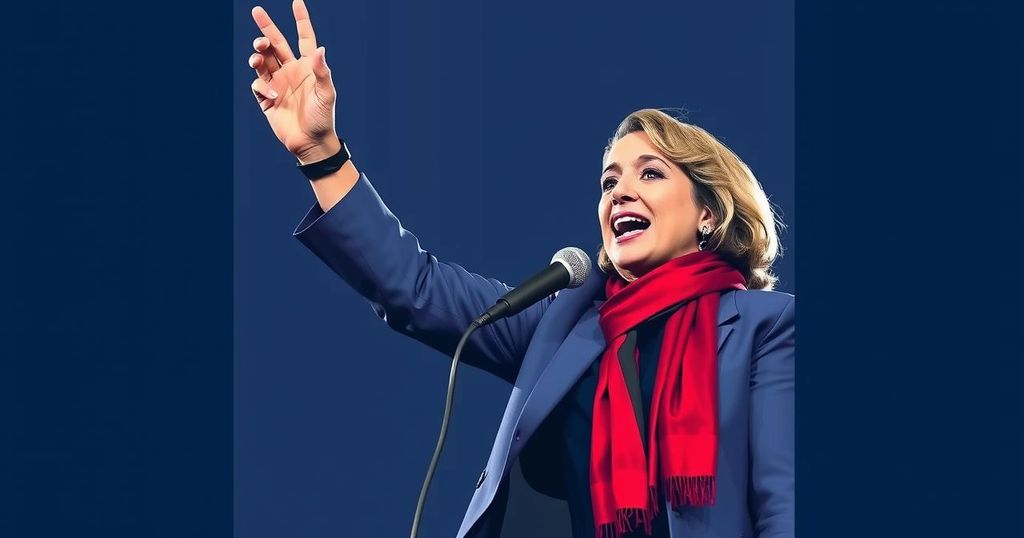Yamandu Orsi, a left-wing candidate from the Broad Front coalition, won Uruguay’s presidential election, defeating center-right candidate Alvaro Delgado. Orsi secured 49.8% of the vote compared to Delgado’s 45.9%, in an election that saw nearly 90% voter turnout. He emphasized unity in his victory speech while current President Lacalle Pou pledged a smooth transition of power.
In a significant political shift for Uruguay, left-wing candidate Yamandu Orsi, representing the Broad Front coalition, has emerged victorious in the recent presidential election following a second round of voting. Official results confirmed that Orsi garnered 49.8% of the votes, defeating Alvaro Delgado of the ruling center-right National Party, who received 45.9%. This electoral outcome marks a pivotal moment as Orsi, who previously served as the mayor of Montevideo and identifies as a proponent of social equity, assumes leadership in a country that has been grappling with economic challenges and public safety concerns.
Orsi’s victory speech underscored a message of unity and inclusion, acknowledging the mixed sentiments among citizens. He stated, “the country of liberty, equality and fraternity has triumphed once again,” while also expressing the need for collaboration with those who may feel discontent: “Let’s understand that there is another part of our country who have different feelings today. These people will also have to help build a better country. We need them too.” Meanwhile, Delgado conceded to Orsi, expressing a sentiment of graciousness despite the electoral loss.
In a commitment to a seamless political transition, President Luis Lacalle Pou, whose tenure previously disrupted 15 years of Broad Front governance, has openly pledged his support to Orsi. He communicated via the social media platform X, formerly known as Twitter, affirming he will assist the incoming president in the transition process at an appropriate time. Orsi, a retired history teacher and advocate for social justice, is perceived as a successor to former President Jose Mujica, renowned for his emphasis on progressive policies and sustainable living.
Voter turnout revealed a robust engagement in the electoral process, with approximately 90% of registered citizens participating in the polls. The election was largely influenced by ongoing issues such as sluggish economic growth and rising crime rates, which have been focal points impacting the electorate’s choices during this political season. The electoral landscape and Orsi’s leadership approach are anticipated to steer Uruguay towards addressing these pressing challenges and fulfilling the electorate’s aspirations for change.
The recent presidential election in Uruguay reflects a significant political transition, with Yamandu Orsi of the Broad Front coalition defeating incumbent President Lacalle Pou’s preferred successor. After experiencing a decade and a half under left-wing governance prior to 2019, the return of the Broad Front to power may represent a turn in policy direction, particularly in addressing socio-economic challenges and public safety concerns that have permeated Uruguayan society. The election is viewed in the context of a broader Latin American trend where leftist movements are regaining prominence amidst dissatisfaction with center-right leadership.
The election of Yamandu Orsi as President of Uruguay signals a transformative phase for the nation, with hopes for renewed focus on social equity and progressive reforms. As Orsi steps into leadership, the commitment to a cooperative approach in governance appears crucial in bridging divides among citizens and addressing pressing economic and security issues. With a historical context favoring leftist ideologies, this election highlights the electorate’s desire for change and the potential for significant policy advancements in the coming years.
Original Source: www.dw.com






